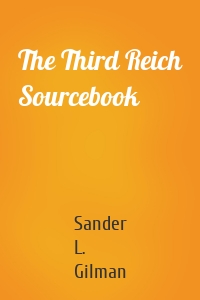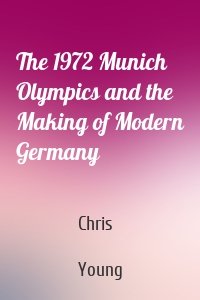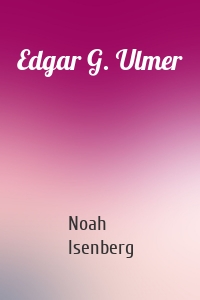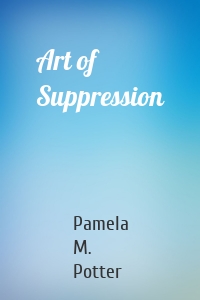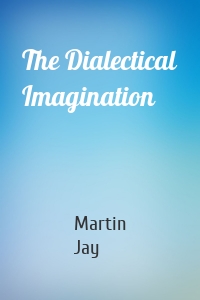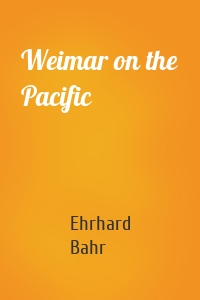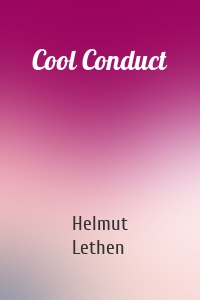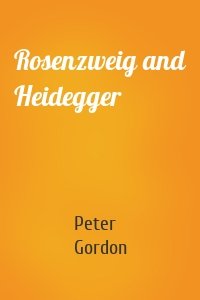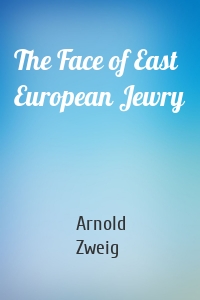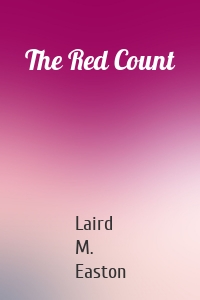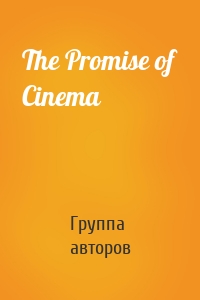Серия "Weimar and Now: German Cultural Criticism"
20 кн.Скачать лучшие книги серии Weimar and Now: German Cultural Criticism - автор Andreas Killen в формате fb2 или читать онлайн, бесплатно и без регистрации. Читаемые, полные версии книг, без сокращений - на сайте Knigism.online. Скачать книги полностью в количестве 20 шт.
Cinema and Experience
Siegfried Kracauer, Walter Benjamin, and Theodor W. Adorno—affiliated through friendship, professional ties, and argument—developed an astute philosophical critique of modernity in which technological media played a key role. This book explores in depth their reflections on cinema and photography from the Weimar period up to the 1960s. Miriam Bratu Hansen brings to life an impressive archive of known and, in the case of Kracauer, less known materials and reveals surprising perspectives on...
| Автор | Miriam HANSEN |
Metropolis Berlin
Metropolis Berlin: 1880-1940 reconstitutes the built environment of Berlin during the period of its classical modernity using over two hundred contemporary texts, virtually all of which are published in English translation for the first time. They are from the pens of those who created Berlin as one of the world’s great cities and those who observed this process: architects, city planners, sociologists, political theorists, historians, cultural critics, novelists, essayists, and journalists....
| Автор | Группа авторов |
The Third Reich Sourcebook
No documentation of National Socialism can be undertaken without the explicit recognition that the «German Renaissance» promised by the Nazis culminated in unprecedented horror—World War II and the genocide of European Jewry. With <i>The Third Reich Sourcebook</i>, editors Anson Rabinbach and Sander L. Gilman present a comprehensive collection of newly translated documents drawn from wide-ranging primary sources, documenting both the official and unofficial cultures of National...
| Автор | Sander L. Gilman |
The 1972 Munich Olympics and the Ma...
The 1972 Munich Olympics—remembered almost exclusively for the devastating terrorist attack on the Israeli team—were intended to showcase the New Germany and replace lingering memories of the Third Reich. That hope was all but obliterated in the early hours of September 5, when gun-wielding Palestinians murdered 11 members of the Israeli team. In the first cultural and political history of the Munich Olympics, Kay Schiller and Christopher Young set these Games into both the context of 1972 and...
| Автор | Chris Young |
Siegfried Kracauer's American Writi...
Siegfried Kracauer (1889–1966), friend and colleague of Walter Benjamin and Theodor Adorno, was one of the most influential film critics of the mid-twentieth century. In this book, Johannes von Moltke and Kristy Rawson have, for the first time assembled essays in cultural criticism, film, literature, and media theory that Kracauer wrote during the quarter century he spent in America after fleeing Nazi-occupied Europe. In the decades following his arrival in the United States, Kracauer commented...
| Автор | Siegfried Kracauer |
Berlin Psychoanalytic
One hundred years after the Berlin Psychoanalytic Institute was established, this book recovers the cultural and intellectual history connected to this vibrant organization and places it alongside the London Bloomsbury group, the Paris Surrealist circle, and the Viennese fin-de-siècle as a crucial chapter in the history of modernism. Taking us from World War I Berlin to the Third Reich and beyond to 1940s Palestine and 1950s New York—and to the influential work of the Frankfurt School—Veronika...
| Автор | Veronika Fuechtner |
Edgar G. Ulmer
Edgar G. Ulmer is perhaps best known today for <i>Detour,</i> considered by many to be the epitome of a certain noir style that transcends its B-list origins. But in his lifetime he never achieved the celebrity of his fellow Austrian and German émigré directors—Billy Wilder, Otto Preminger, Fred Zinnemann, and Robert Siodmak. Despite early work with Max Reinhardt and F. W. Murnau, his auspicious debut with Siodmak on their celebrated Weimar classic <i>People on...
| Автор | Noah Isenberg |
Art of Suppression
This provocative study asks why we have held on to vivid images of the Nazis’ total control of the visual and performing arts, even though research has shown that many artists and their works thrived under Hitler. To answer this question, Pamela M. Potter investigates how historians since 1945 have written about music, art, architecture, theater, film, and dance in Nazi Germany and how their accounts have been colored by politics of the Cold War, the fall of communism, and the wish to...
| Автор | Pamela M. Potter |
The Dialectical Imagination
Herbert Marcuse, Erich Fromm, Max Horkheimer, Franz Neumann, Theodor Adorno, Leo Lowenthal—the impact of the Frankfurt School on the sociological, political, and cultural thought of the twentieth century has been profound. <i>The Dialectical Imagination</i> is a major history of this monumental cultural and intellectual enterprise during its early years in Germany and in the United States. Martin Jay has provided a substantial new preface for this edition, in which he reflects on the...
| Автор | Martin Jay |
The Promise of Cinema
Rich in implications for our present era of media change, <I>The Promise of Cinema</I> offers a compelling new vision of film theory. The volume conceives of “theory” not as a fixed body of canonical texts, but as a dynamic set of reflections on the very idea of cinema and the possibilities once associated with it. Unearthing more than 275 early-twentieth-century German texts, this ground-breaking documentation leads readers into a world that was striving...
| Автор | Группа авторов |





